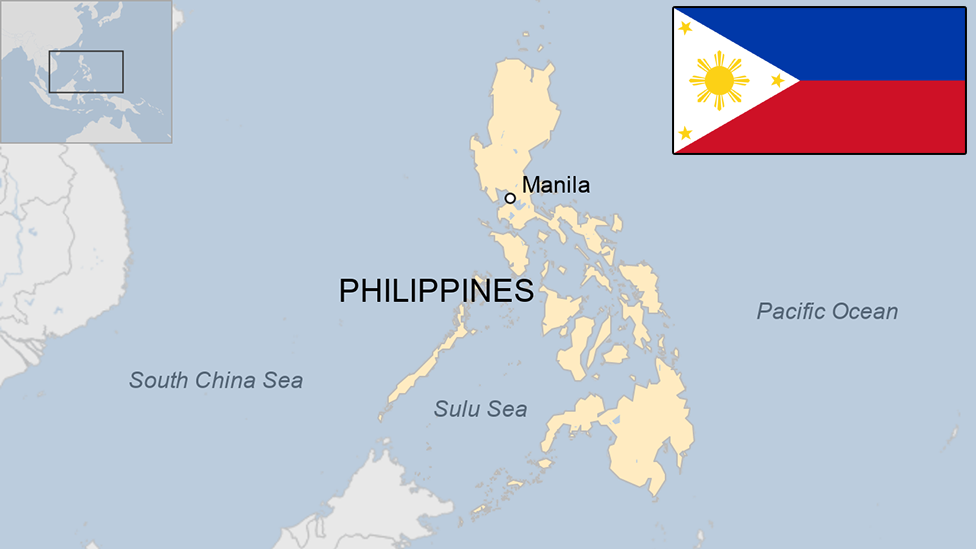Beijing engineers coverage of South China Sea ruling
- Published
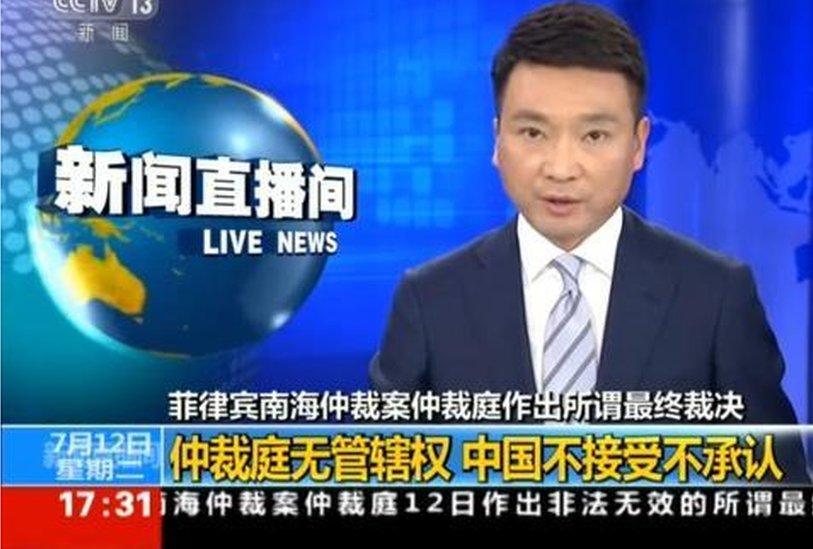
State broadcaster CCTV said that China did not accept the Hague ruling
Chinese media have not lost time in reinforcing Beijing's insistence that it does not recognise an international tribunal's ruling against its claims to rights in the South China Sea.
In recent months, state media have been stressing the waters have been China's "since ancient times".
Now, state media are rolling out masses of fresh material aimed at discrediting The Hague tribunal's ruling.
'Illegal, invalid'
State media anticipated the Permanent Court of Arbitration's findings. Almost immediately, outlets including Xinhua news agency released a prepared statement describing the decision as "illegal and invalid".
"China has repeatedly declared that the arbitration tribunal does not have jurisdiction; China neither accepts nor recognises it," Xinhua said.
It then released a government statement saying China "has territorial sovereignty and maritime rights over the South China Sea islands" and "resolutely opposes a few countries' illegal violations" - a reference to the US and its allies in the region.
But it hinted at a way forward, saying there is potential for China to enter into "joint developments" in order to "achieve win-win results" and peace and stability in the South China Sea.
'Null and void'
State-run CCTV cited the foreign ministry's view that the tribunal proceedings were "null and void".
It featured British, Iranian, Pakistani and Lebanese experts who questioned the verdict. Oxford academic Antonios Tzanakopoulos told the TV that he did not find the tribunal's points "fully convincing".
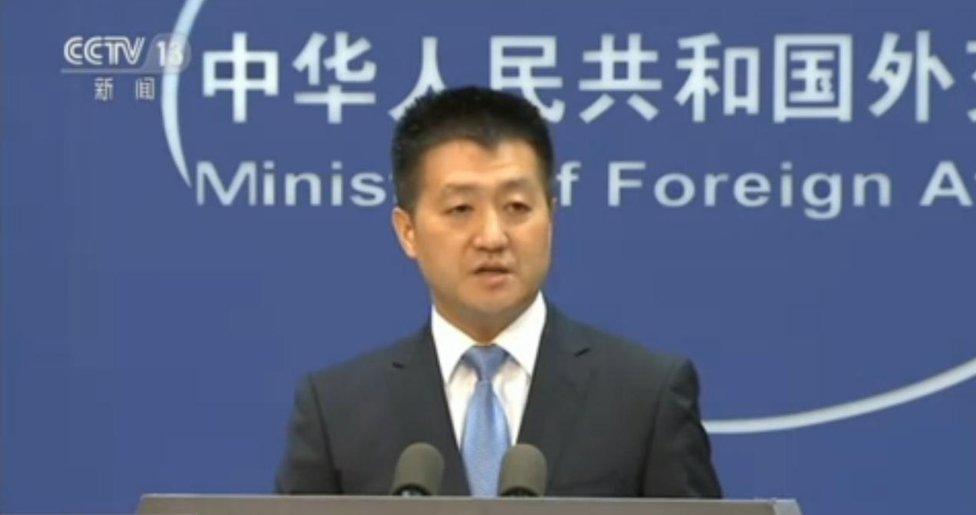
China's foreign ministry has previously condemned the Hague arbitration
CCTV also hinted at possible negotiations with the Philippines. It showed former Filipino ambassador Alberto Encomienda saying American interference had triggered the case. He added: "There's a lot we can do, not in terms of what China can do for us, but what we can do together for the region."
#SouthChinaSeaArbitration
There was an immediate attempt to control online discussion in China.
In the minutes before the announcement, Sina Weibo's hashtag #SouthChinaSeaArbitration was number one in its top 10. Its landing page carried more than 170,000 posts.
Once the result was out, the hashtag disappeared from Sina's ranking.
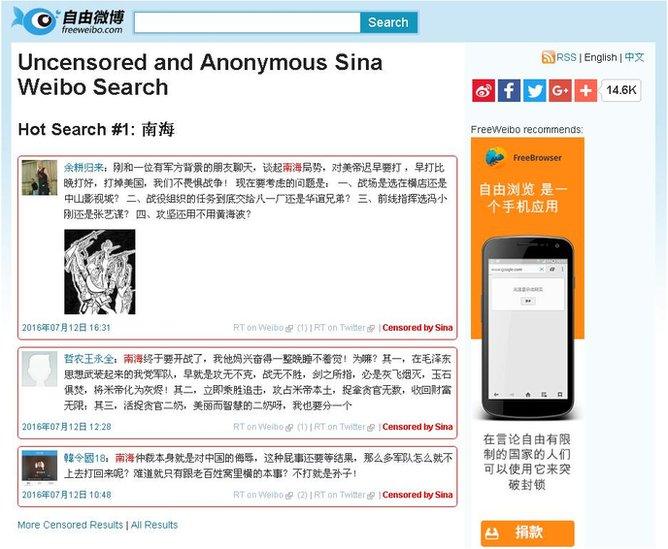
"South China Sea" is the most censored Weibo term according to Free Weibo.
State media and its millions of followers - including Xinhua, People's Daily and CCTV - adopted a similarly-named hashtag, #SouthChinaSeaArbitrationCase. It quickly rose to number one in the ranking, with posts overwhelmingly dismissing the Hague ruling.
Meanwhile, over at censorship-monitoring website Free Weibo, "South China Sea" became the most-censored term.

Muted reaction in the Philippines - Jonah Fisher, BBC News, Manila
The press room was packed but the statement from Philippine Foreign Secretary Perfecto Yasay lasted just two minutes.
In four short paragraphs, he explained that experts were now analysing the ruling and called on all concerned to exercise "constraint and sobriety" at what he described as a "milestone decision".
There were no celebrations, hardly even a smile. And there's a reason for that.
This is not the same government that first brought this case to the Permanent Court of Arbitration three and a half years ago, in the aftermath of a standoff at Scarborough Shoal.
Two weeks ago, Rodrigo Duterte was sworn in as Philippine president. All the indications are that he is more willing to seek accommodation with the Chinese than his predecessor, Benigno Aquino.
Here in Manila, many believe that the new president may have sought promises of Chinese investment, in return for a quiet, dignified response.

BBC Monitoring reports and analyses news from TV, radio, web and print media around the world. You can follow BBC Monitoring on Twitter, external and Facebook, external.
- Published12 July 2016
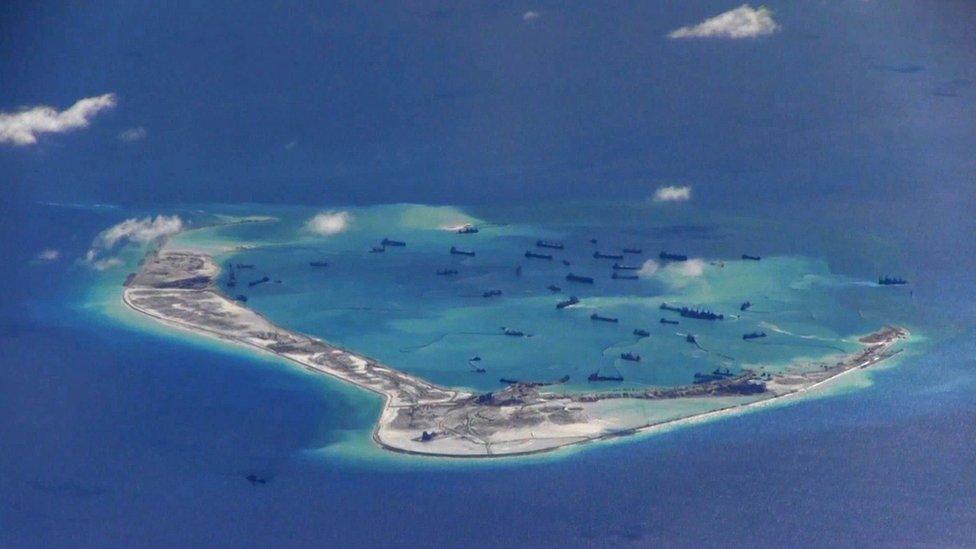
- Published12 July 2016
- Published7 July 2023
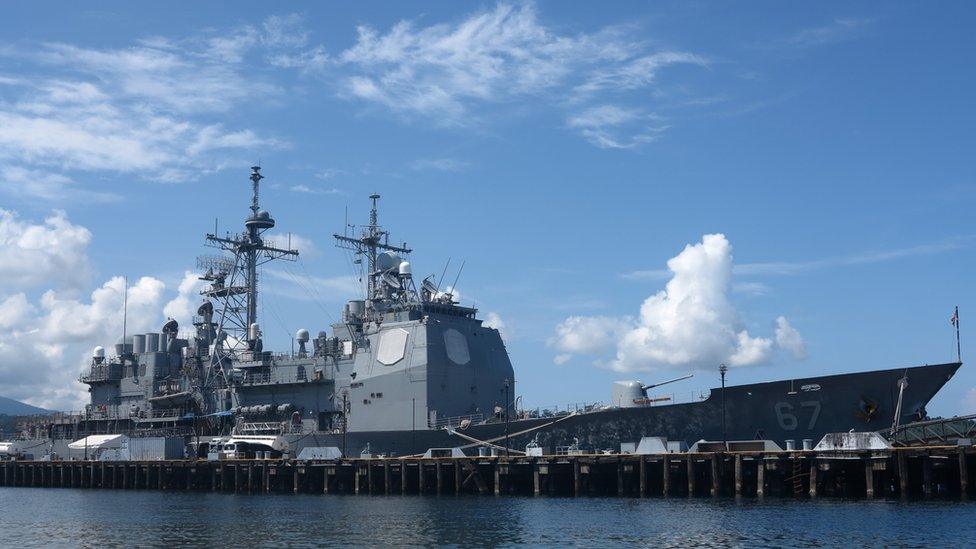
- Published25 August 2023
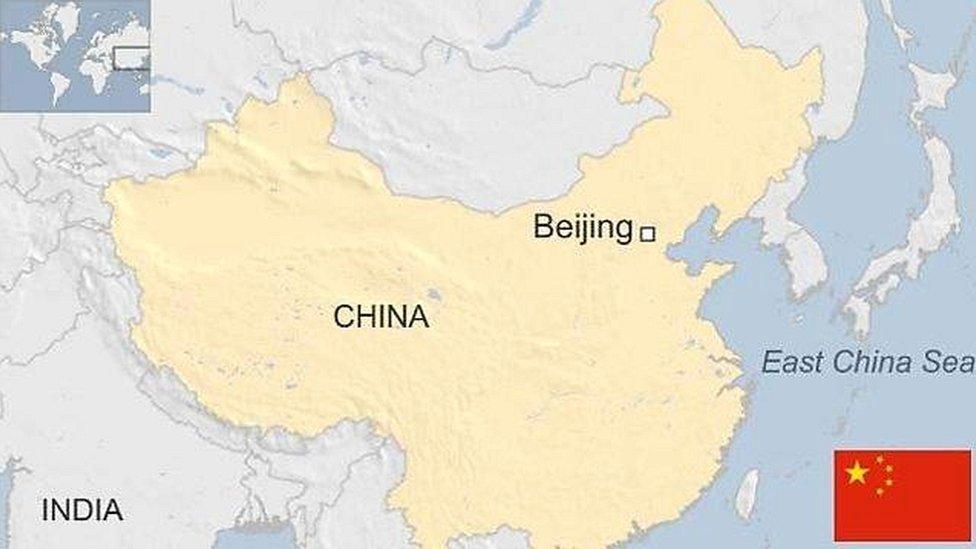
- Published5 July 2023
